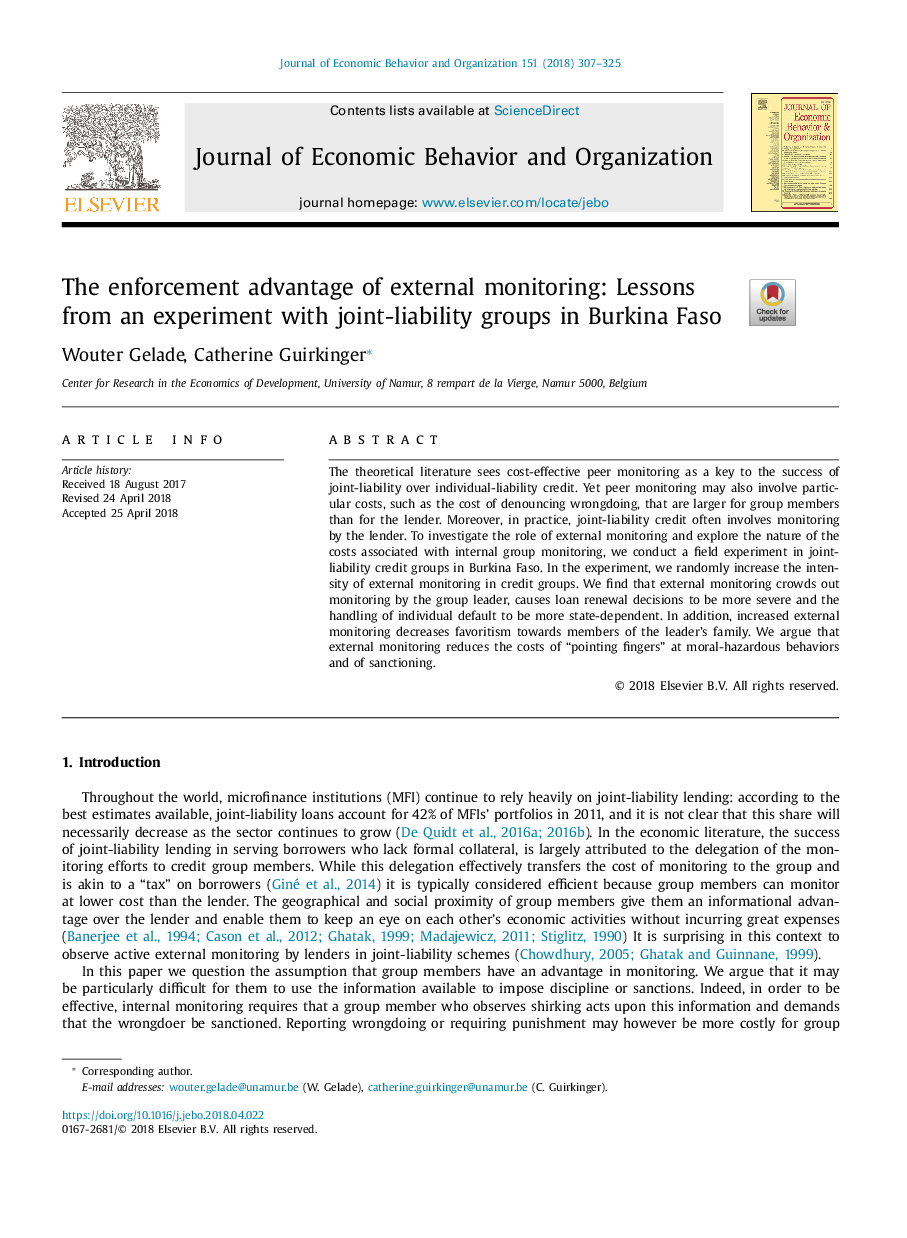| Article ID | Journal | Published Year | Pages | File Type |
|---|---|---|---|---|
| 7242490 | Journal of Economic Behavior & Organization | 2018 | 19 Pages |
Abstract
The theoretical literature sees cost-effective peer monitoring as a key to the success of joint-liability over individual-liability credit. Yet peer monitoring may also involve particular costs, such as the cost of denouncing wrongdoing, that are larger for group members than for the lender. Moreover, in practice, joint-liability credit often involves monitoring by the lender. To investigate the role of external monitoring and explore the nature of the costs associated with internal group monitoring, we conduct a field experiment in joint-liability credit groups in Burkina Faso. In the experiment, we randomly increase the intensity of external monitoring in credit groups. We find that external monitoring crowds out monitoring by the group leader, causes loan renewal decisions to be more severe and the handling of individual default to be more state-dependent. In addition, increased external monitoring decreases favoritism towards members of the leader's family. We argue that external monitoring reduces the costs of “pointing fingers” at moral-hazardous behaviors and of sanctioning.
Related Topics
Social Sciences and Humanities
Economics, Econometrics and Finance
Economics and Econometrics
Authors
Wouter Gelade, Catherine Guirkinger,
